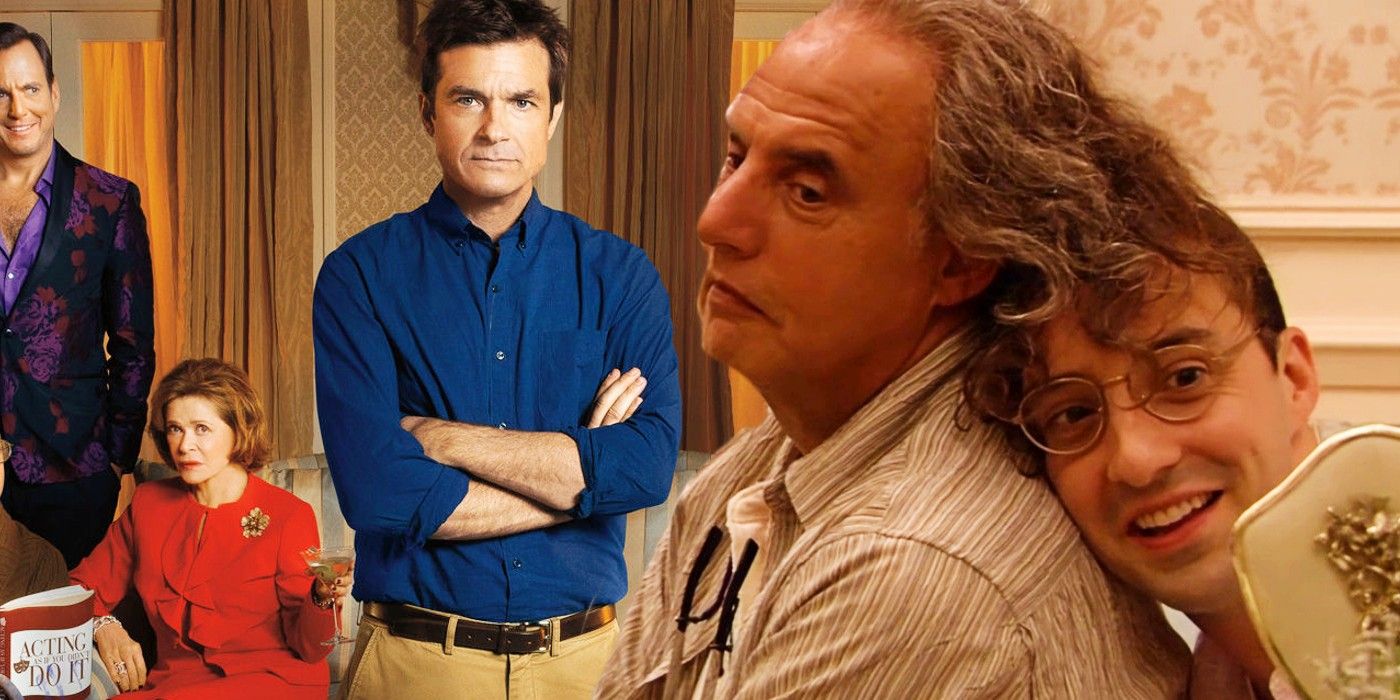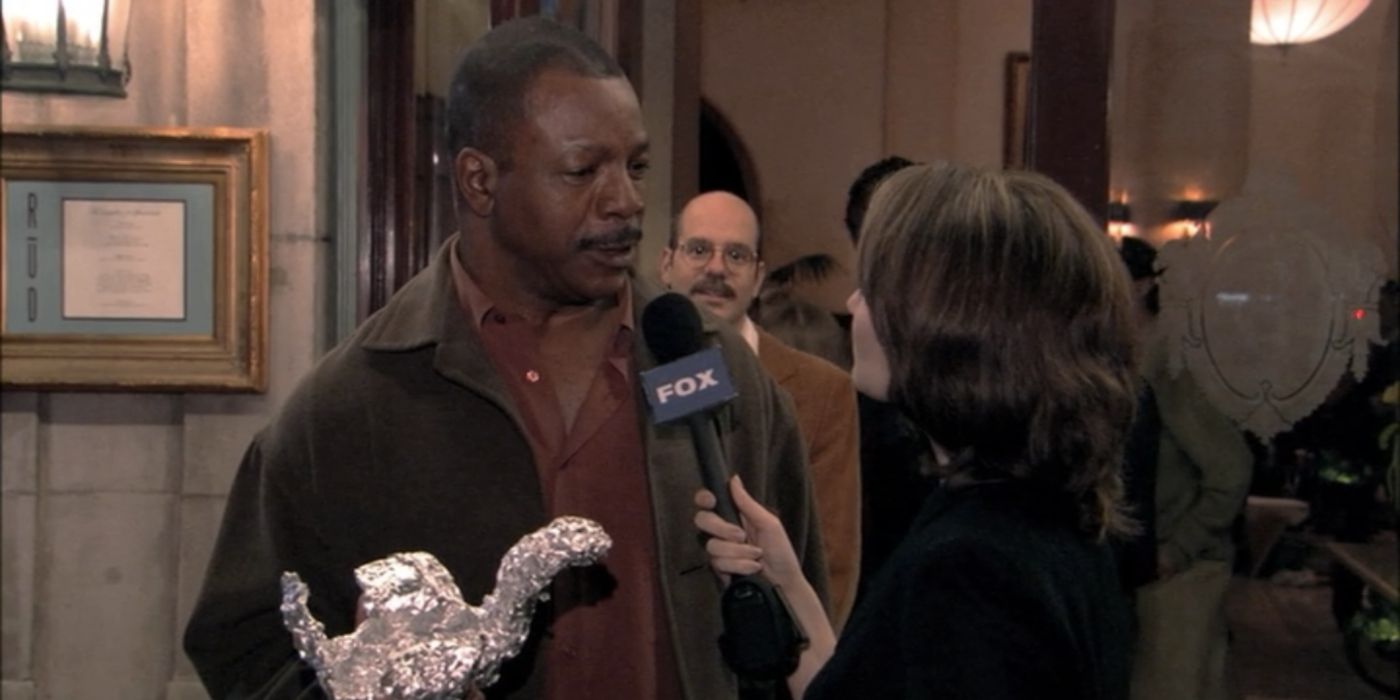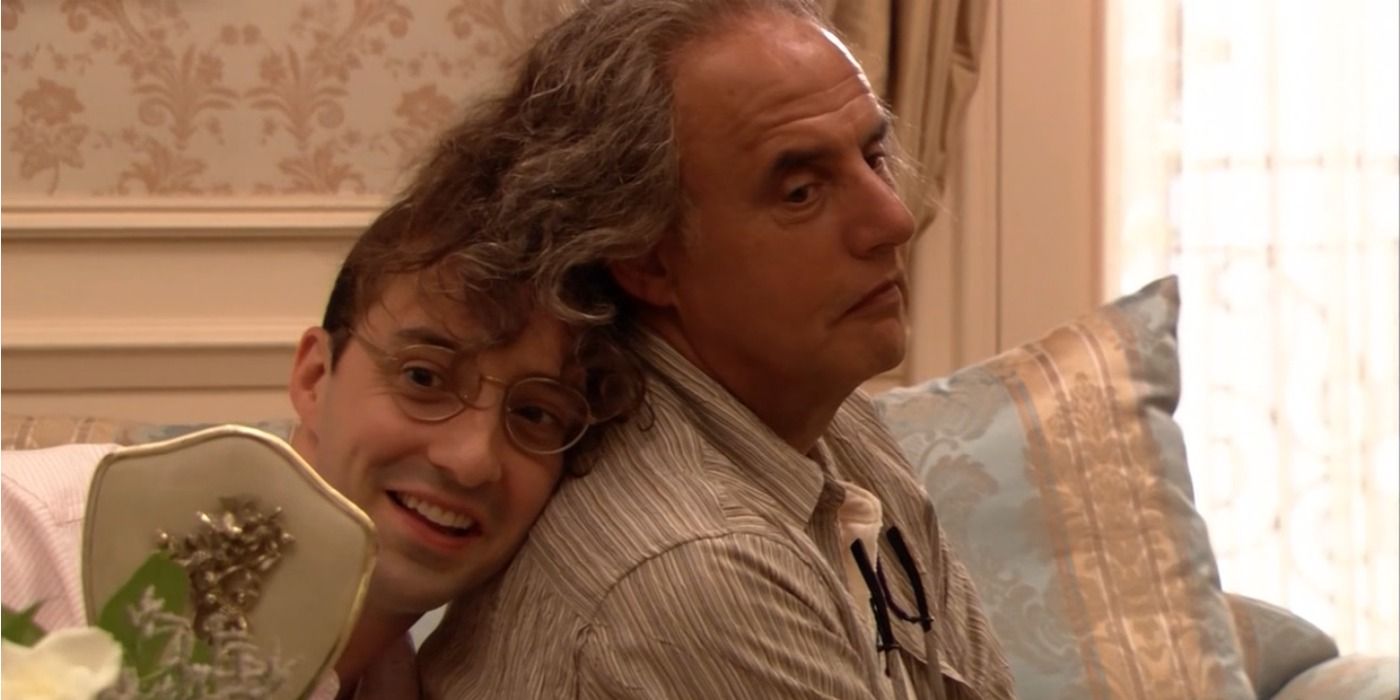It has been 18 years since the premiere of Arrested Development and since the legendary sitcom began, the show has reshaped the expectations that audiences have of sitcoms as a genre. Arrested Development debuted in 2003 to critical acclaim but lackluster ratings. Despite Arrested Development featuring an ensemble cast of both then and future stars, the sitcom was canceled after only 3 seasons due to low ratings.
In the years that followed, Arrested Development’s cast and creators moved on to impressive new projects as the series gained a cult following. The MCU masterminds/Cherry directors the Russo Brothers helmed numerous fan-favorite episodes of the sitcom before becoming blockbuster royalty while, in terms of stars, Arrested Development offered early lead roles to Will Arnett, Alia Shawkat, Micheal Cera, and Jason Bateman. Eventually, the enduring popularity of Arrested Development led Netflix to revive the series for a belated fourth and fifth season in 2013 and 2018 respectively.
The iconic, quickly canceled series was often called “ahead of its time” by critics and cultural commentators but Arrested Development’s unique style and tone were not just unusual for the era of the show’s release. Rather, the innovations of Arrested Development helped actively shape the next two decades of sitcoms, changing what viewers expected from the format and adapting the somewhat staid style to the era of streaming services. Later hits like Rick & Morty and Community borrowed liberally from Arrested Development’s ambitious running gags and meta-commentary, but even less obviously-indebted hits like Shameless and It’s Always Sunny In Philadelphia owe a debt to the sitcom’s brazenly mean-spirited style and pessimistic tone. Meanwhile, Arrested Development’s decision to set up gags episodes in advance and reward rewatching made the series a perfect precedent for sitcoms of the streaming service era, a lot of which operate under the assumption that viewers will binge-watch the entire season upon release and then go back to search for easter eggs and rewatch bonuses.
Arrested Development Made Meta Humor Mainstream
Arrested Development’s self-aware style, somewhere between full-blown mockumentary and traditional single-camera, allowed for more meta-humor than most TV shows before or since. Earlier innovations like The Simpsons’ lax approach to continuity meant sitcoms had been able to wink at the audience and mock television conventions before, but Arrested Development was one of the first live-action sitcoms to predicate many of its gags on the idea that characters sometimes seemingly knew they existed in a TV show. Although Community and 30 Rock directly adopted this approach to self-referential humor with even more brazen fourth-wall-breaking than Arrested Development featured, more mainstream releases like The Office and Parks and Recreation also made mugging to the camera and acknowledging the audience more mainstream. Arrested Development paved the way for both approaches. Jim’s eye rolls to the camera on The Office owed a creative debt to Michael’s direct-to-camera frowns throughout Arrested Development, while 30 Rock’s later gags about shameless Verizon product placement were pioneered by Arrested Development’s comically obvious Burger King shilling.
Arrested Development Brought Back (Non-)Serialization
Over the decades, many beloved long-running hit sitcoms like Friends, Cheers, New Girl, and How I Met Your Mother have ensured that thanks to their central “will they won’t they” romances, serialization never goes out of fashion in sitcoms. However, sitcoms generally only use serialization to set up serious, usually romantic plotlines, whereas when it comes to jokes, the show’s status quo resets every week to ensure that the characters never change too much. Traditionally, the assumption is that sitcoms need jokes to land even if viewers missed last week’s episode, something that Arrested Development repeatedly subverted.
Arrested Development changed the sitcom’s approach to serialization, using the format to set up jokes that wouldn’t pay off until multiple episodes later. By using serialization comedically instead of dramatically, Arrested Development allowed sitcoms to develop the sort of slow-burn, multi-episode running gags that flourished in the streaming/binge-watching era. The Simpsons set up one gag seasons in advance, but Arrested Development took this one-off anomaly and made it an ambitious cornerstone of the series. Where shows like The Good Place and Bojack Horseman took it for granted that audiences would be able to recall punchlines that were set up a season in advance, Arrested Development demanded that viewers remember every earlier episode while watching new ones. Unfortunately, without the advantage of streaming making rewatching simpler, this approach fell flat for many casual viewers and only paid off for the die-hard Arrested Development fans willing to revisit the series repeatedly.
Arrested Development Made Sitcoms (Even) Meaner
The likes of Seinfeld’s legendary ‘no hugging, no learning’ ethos ensured that sitcoms always had a certain mean streak even before Arrested Development. However, Arrested Development’s surprisingly dark outlook leaned into the idea that all of its cast were hypocrites, and all their adventures ended in inevitable, well-earned failure, like The Simpsons if every Springfielder was a villain. Arrested Development was unusually brutal even by sitcom standards and proved a necessary corrective to the sometimes saccharine tone of the television medium. Sitcoms often relied on romantic subplots and sentimental golden moments to keep viewers invested in their formulaic episodes, particularly the warmer, more relationship-centric post-Friends hits like That 70s Show and 8 Simple Rules.
In contrast, Arrested Development adopted a more mean-spirited outlook that was like nothing else on television at the time and that has since gone on to influence the likes of It’s Always Sunny In Philadelphia, Rick & Morty, Bojack Horseman, and Shameless. Arrested Development also helped normalize darker types of TV comedy, paving the way for dramedy hits like Atlanta and Succession (essentially a self-serious version of Arrested Development). Arrested Development’s dark tone took the edgier elements of The Simpsons and Seinfeld and made the jokes more brutally cutting while also keeping things silly enough to be entertaining. In the process, Arrested Development allowed sitcoms to traverse darker thematic territory over the coming decades. The enduring impact of the iconic series can be seen in almost every hit sitcom of 2021, most of which owe some of their ambitious running gags, moments of meta-humor, or darker edge to Arrested Development.




